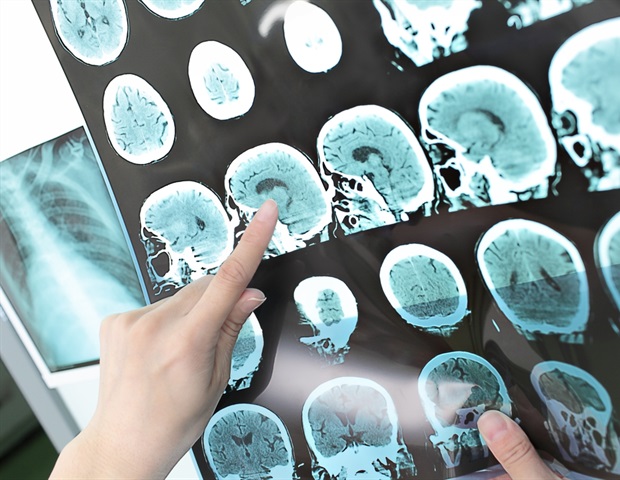
Blood vessels that cross-connect adjoining arterial timber regulate blood circulate to the mind in stroke sufferers. Researchers on the College of Zurich have now proven that these vessels forestall mind hemorrhage following remedy to take away blood clots. They play a vital position within the restoration of stroke sufferers.
Ischemic strokes are a significant well being burden. They happen when a blood vessel that provides the mind turns into blocked, impairing blood circulate to the mind. Consequently, mind tissue suffers from an absence of oxygen and vitamins, which causes signs equivalent to paralysis, confusion, dizziness, headache, bother talking and even loss of life.
Many stroke sufferers get well poorly regardless of well timed remedy
To deal with these signs and restore blood circulate to the mind, the obstructed vessel must be “declogged”, or recanalized. Modern therapies to take away the clot embrace intravenous thrombolysis or mechanical thrombectomy utilizing a catheter. Nevertheless, even with well timed clot removing, many stroke sufferers solely get well poorly.
The analysis group of Susanne Wegener, professor on the College of Zurich (UZH) and senior main doctor on the Division of Neurology of the College Hospital Zurich (USZ), has now demonstrated that the result of stroke therapies relies on the collateral community. Collaterals are blood vessels that cross-connect adjoining arterial timber, offering potential detour networks in case of a vascular blockage.
These vascular bridges keep cerebral autoregulation and permit for a slower, gradual reperfusion, which ends up in smaller infarcts.”
Susanne Wegener, Professor, College of Zurich (UZH)
Speedy reperfusion will increase mortality
For his or her research, the analysis crew with the 2 co-first authors Nadine Binder and Mohamad El Amki used a mouse mannequin of stroke in addition to superior in vivo imaging strategies to research modifications within the arterial blood provide. In mice with poor collaterals, the arterial segments have been dysfunctional and inflexible after clot removing. “The speedy reperfusion that adopted brought on mind hemorrhage and elevated mortality,” says Wegener.
The researchers have been then capable of affirm the outcomes obtained within the mouse mannequin in stroke sufferers. Stroke sufferers who had poor collaterals confirmed an analogous speedy reperfusion following remedy to take away blood clots, additionally leading to small cerebral hemorrhages and unfavorable restoration.
The higher the arterial connections, the higher the restoration
Up to now, the main target has been on fast removing of blood clots in stroke sufferers, whereas issues related to speedy post-treatment reperfusion and its potential dangerous results had obtained little consideration. The research now implies that it’s attainable to determine stroke sufferers with a better threat of poor restoration by the velocity of reperfusion throughout remedy. “Future therapeutic interventions for stroke ought to purpose to boost collateral perform, permitting for useful reperfusion after stroke,” concludes Susanne Wegener.
Supply:
Journal reference:
Binder, N. F., et al. (2024) Leptomeningeal Collaterals Regulate Reperfusion in Ischemic Stroke and Rescue the Mind from Futile Recanalization. Neuron. doi.org/10.1016/j.neuron.2024.01.031.


